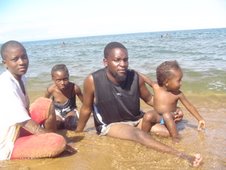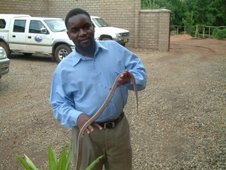Detention Camps – the only sure way to end violence against women and children
By HASTINGS MALOYA
If it was a prayer, I could have asked all of us to bow our heads; close our eyes and pray. Well, it’s not a prayer, but nevertheless, let us take a bit of our time and silently reflect. Just come to think of it; a 57-year old man defiles a six-month old baby. A seven-year old girl is defiled by her own teacher, let alone a headmaster. And a woman has her arms chopped by her husband or has her private parts disfigured by someone who was supposed to be her lover.
How about issues of well-dressed men caught with private parts in their bags. Talk of news of unknown assailants removing women’s breasts and gouging their eyes. Then there is the-now famous Ndirande vampire who has the audacity of changing locations in Blantyre and targeting innocent women at will. The stories are endless and they do not make good reading. Each passing day we realize that Malawi is not as safe a place to live in as it was supposed to be especially for women and children.
All these sounds and feels easy when they are just in a form of news that we read in the papers, listen on the radio or watch on TV. We can as well get used to them and let them pass.
But why are we silently reflecting today? Well, I want us to try and imagine what our reaction would be if our closest relation was such a victim. We are trying to put ourselves in an imaginary situation where our daughter has been defiled, our sister has had her private parts removed or our only child has been attacked and his eyes removed! Our imaginations go beyond the act, but now the perpetrator has been caught and enough evidence lay bare. Here we are standing in front of the handcuffed culprit.
I know different people will react differently but honestly very few will talk of forgiveness. Individually, one would think of the trauma that might have engulfed the affected community, let alone the future of the victim is he or she is lucky to be alive. One would ask why such a heartless person should be forgiven. Others would even ask the police to release the culprits so that the concerned community can provide the required chastisement that the scoundrels deserve. Unfortunately, the police won’t allow people to take the law in their hands and there is no possibility that these merciless people shall be given the stiffest penalty that would deter others from committing similar crimes.
But then as a nation, do we have in sight any means that we can use to deal away with this situation? Yes. Introduction of detention camps where all proven perpetrators should be thrown and get the heat. They should realize that our society does not need such type of people whose behaviour is more or less that of a beast. Thus the only way we will deal away with the worries that we have today.
This is where His Excellency the President Dr. Bingu wa Mutharika deserves credit for proposing the reintroduction of detention camps for perpetrators of violence against women and children. He needs to be given all the support. We can build a better Malawi.
But; hear this.
At a rally addressed by the opposition United Democratic Front (UDF) in Mulanje recently, some political leaders accused the President for having proposed the introduction of detention camps. They called it dictatorship. In other words, they are not supporting stiffer punishments for people who bring calamities and anxiety in our midst. After all they are free to do what they please – this is democracy. Isn’t it?
The president’s proposal for detention camps was not meant for politicians. It was not meant for those opposing to his governing policies. And it was not made at a political rally. It was meant to give peace and harmony to our women and children. How this noble thought was turned to mean politics is yet to be clarified. One wonders whether the opposition politicians just wanted to achieve political mileage by misguiding their followers or indeed they meant what they said. Again it would be very difficult to comprehend whether any of them has ever had an experience of what it means to go through an ordeal of violence. Turning this issue into politics is the last thing Malawians could have expected to hear from a government in waiting – if indeed thus what opposition means.
Nonetheless, who can blame the politicians when it was custodians of human rights in Malawi that started it all? Their reaction to the suggestion by the President was that of total condemnation regardless of what the suggestion was meant to achieve. The so-called human rights watchdogs never gave a chance to Malawians to debate the proposal and look at the pros and cons. Thus human rights – Malawi style. In other words, our colleagues who work for human rights organizations are the know-it-all supermodels and can positively think of a proposal only when it comes from among themselves. Sad.
Human rights? Whose human rights are we concerned with?
It makes some of us sad that we have people with little concern about our children being defiled daily, school girls and women being raped at will. Our mothers dehumanized, beaten and having their body and private parts tampered with. Gone are the days when we could leave our school girls freely walking distances to and from schools. Today we can not trust our own housemaids and watchmen. Notorious businesses are creeping in. And we want to sit there and silently watch. Poor we.
Its unfortunate but we do not need to overemphasize the fact that the so called human rights activists are only looking for their daily bread. It’s employment. They do not have the concerns of the nation at heart. We may delay if we were to waste our time listening to them. As for politicians, your guess is as good as mine.
With a level mind, President Mutharika ought to be given massive support for this brilliant proposal. Surely families that have had a share of the problems associated with violence on women and children now realizes that they have comfort in the country’s leadership. If there will be need to change the name of the camps from detention camps to something else, there will be no problem but the idea is luminous. We may see an end to the suffering that Malawian women and children have seen through the years.
And the President must know that not all will agree with his proposals regardless of how gleaming they may be. Whether it would be the fight against corruption, the fertilizer subsidy programme, the Shire Zambezi Waterway, the Kamuzu Mausoleum and many more, we still shall have people that will want to pull his legs despite having no convincing reasons. I bet he does not give up. If anything, let Malawians debate this proposal and views shared honestly. I strongly believe that we need the detention camps – it’s a solution.
* Hastings Maloya works as an Environmental Education Officer
for the Mulanje Mountain Conservation Trust
but writing in his personal capacity.
I WELCOME you!
Dear Good People,
I warmly welcome you to my Blog and it is my profound hope that you will find it useful and worth the time you spend on it. On this Blog, I have posted some of the articles and pieces that I have writen just for record purposes and also for sharing. You might have read these articles in the papers but it could also be possible that you missed them.
Please be advised that these are my toughts and purely my opinions. You are free to comment on them and/or to critic them. I will appreciate any of your comments.
Thank You.
Hastings Maloya
+265 888864241 or +265 999950953
I warmly welcome you to my Blog and it is my profound hope that you will find it useful and worth the time you spend on it. On this Blog, I have posted some of the articles and pieces that I have writen just for record purposes and also for sharing. You might have read these articles in the papers but it could also be possible that you missed them.
Please be advised that these are my toughts and purely my opinions. You are free to comment on them and/or to critic them. I will appreciate any of your comments.
Thank You.
Hastings Maloya
+265 888864241 or +265 999950953
About Me
- Hastings A. MALOYA
- Mulanje, Southern Region, Malawi
- Is an experienced journalist, writer, specialist in development communications, public relations, publications, desktop publishing, information technology, photography, environmental education and rural development. Hastings Maloya is currently working as Programme Officer responsible for Environmental Education, Awareness and Communications for the Mulanje Mountain Conservation Trust (MMCT) since September 1, 2002. Hastings, comes from Tradional Authority Mabuka in Mulanje District, is an Adventist Christian, and has two daughters Eva and Eve.
Subscribe to:
Comments (Atom)







